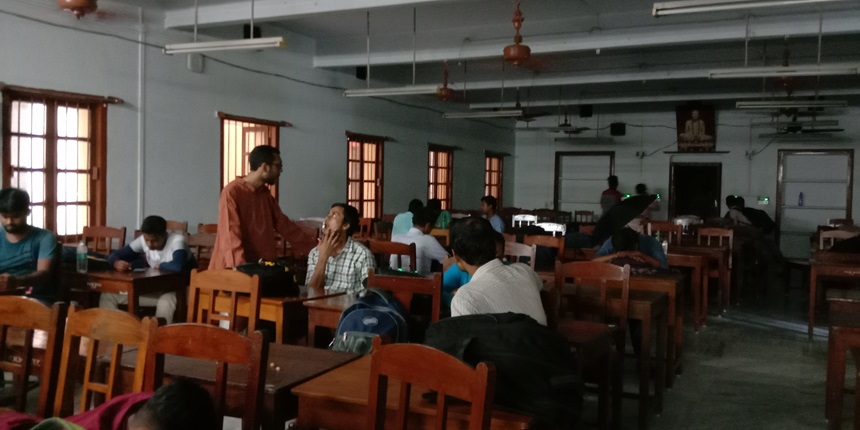Biannual admissions ‘not mandatory’; will help increase student intake, offer new courses: UGC
Vagisha Kaushik | June 11, 2024 | 08:03 PM IST | 2 mins read
UGC has allowed Indian universities to admit students twice a year from 2024-25 session.

NEW DELHI: The University Grants Commission (UGC) has allowed Indian higher education institutions (HEIs) to offer admissions in regular mode twice a year starting from the academic session 2024-25. The decision has been taken after considering the response and interest from students in the biannual admissions in the online and distance education programmes, it said.
The institutions which have the required infrastructure and teaching faculty can utilize the opportunity to admit students two times a year. The commission said that it is not mandatory for the HEIs to offer biannual admissions, it is a flexibility that UGC is providing to the institutions which want to increase their student intake and offer new programmes in emerging areas. To be able to admit students biannually, HEIs will be required to make ‘suitable’ amendments to their regulations.
“Considering the tremendous response and interest from the students in ODL and online programs in biannual admissions, in its meeting held on 15-05-2024, UGC took a policy decision to allow Higher Education Institutions (HEIs) who offer programs in regular mode to admit students twice in a year, either in January/February or July/August from the coming academic year. With this decision by UGC, HEIs offering programs either in online/ODL mode or regular physical mode will be able to admit students twice in a year,” read UGC’s official statement.
The commission decided on permitting two-cycle admissions in a year for the online and ODL programmes in a meeting held in July last year. As per the information provided by the universities on the UGC DEB portal, besides 19,73,056 students who enrolled in July 2022, an additional 4,28,854 joined in January 2023.
“These numbers show that permitting a second academic session in a year has helped nearly half a million students join their degree programmes without waiting for one full academic year,” UGC said.
College admissions: Recruitment, international collaboration
With biannual admissions in place, industries can also conduct their campus recruitment twice a year, improving employment opportunities for the graduates, the commission said. It will also enable the universities to plan their resource distribution such as faculty, labs, classrooms and support services, more efficiently, resulting in a better functional flow within the university, it added.
Talking about the benefits of the biannual admissions, UGC said, “Universities worldwide already follow a biannual admission system. If Indian HEIs adopt the biannual admission cycle, our HEIs can enhance their international collaborations and student exchanges. As a result, our global competitiveness will improve, and we will align with the global educational standards.”
Biannual admissions can substantially increase the Gross Enrolment Ratio (GER) and make India a 'Global Study Destination' as envisioned in National Education Policy (NEP) 2020, the commission iterated.
Further, UGC stated that If HEIs adopt biannual admissions, they need to work on administrative intricacies, good planning for increased use of available resources, and providing seamless support systems for the smooth transition of students admitted at different times of the year. The institutions can make maximum use of biannual admissions only when they sufficiently prepare the faculty members, staff, and students for the transition.
Follow us for the latest education news on colleges and universities, admission, courses, exams, research, education policies, study abroad and more..
To get in touch, write to us at news@careers360.com.